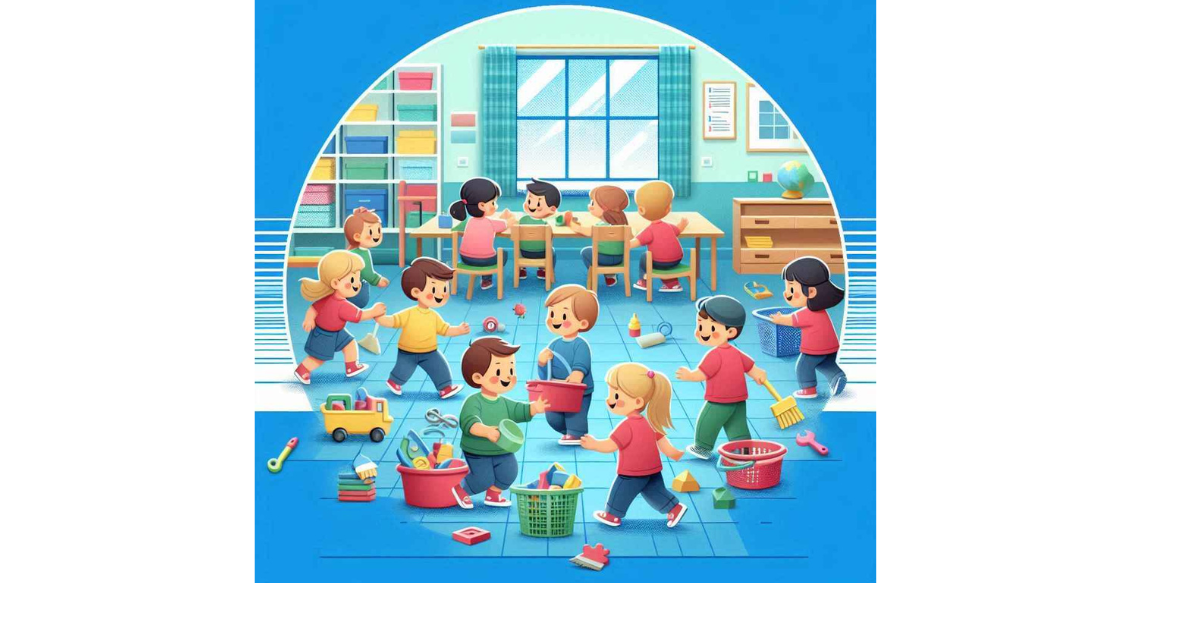As parents, helping preschoolers build responsibility is one of the greatest gifts we can give them. Children are naturally curious and eager to help at this age, making it the perfect time to start fostering responsibility. But how can we do this effectively? Let’s explore practical, age-appropriate strategies that support their development and encourage them to become more self-reliant and responsible.
Why is Responsibility Important for Preschoolers?
“It is important in preschool simply because it is the building block for the child as he grows up.” Nothing is more important than teaching children responsibilities at a young age so that they develop responsible personalities such as discipline, problem-solving, and even sympathy. It also creates pride and accomplishment, improving their confidence and self-esteem levels.
Understanding the Role of Responsibility in Early Childhood
Learning responsibility at an early age is essential for a child’s overall development. When children understand responsibility, they learn valuable life skills, such as organization, time management, and self-reliance. For preschoolers, these skills come from taking on simple tasks and gradually building their confidence.
Long-Term Benefits of Teaching Responsibility Early
Teaching children responsibility early helps them build good habits for the future. When kids are given tasks they can handle, they become stronger and better at solving problems. They also feel proud of what they achieve, which boosts their confidence and motivates them to try new things.
Age-Appropriate Responsibilities for Preschoolers

How to Introduce Simple Chores
Introducing simple chores is a great way to begin teaching responsibility. Start with easy tasks like helping to cook, putting toys away, setting the table, or wiping up small spills. These chores are manageable for preschoolers and help them understand that their efforts contribute to family life.
Responsibilities Preschoolers Can Handle Independently
Some tasks are perfect for young children to handle on their own. For instance, they can dress themselves with a little guidance, pick up their clothes, or feed pets with supervision. By allowing them to take charge of these simple responsibilities, you’re helping them grow more independent and capable.
Practical Tips for Encouraging Responsibility

Using Positive Reinforcement
Positive reinforcement is a wonderful tool for encouraging responsible behavior. Praise your child for completing a task, even if it’s not perfect. Small rewards, like stickers or extra playtime, can motivate them to keep trying and build a positive association with being responsible.
Setting Realistic Expectations
Setting realistic expectations is essential when teaching responsibility. Preschoolers may not understand the concept of responsibility entirely, so start with small, achievable tasks. Be patient and avoid expecting them to get everything right immediately. Remember, the goal is to help them learn and grow.
Encouraging Self-Care Skills
Teaching your child to take care of themselves is a big step toward building responsibility. Encourage them to brush their teeth, wash their hands, and dress themselves as much as they can. These self-care skills foster independence and help them feel proud of what they can accomplish on their own.
How to Support Preschoolers When They Face Challenges
Patience and Guidance
Every child learns at their own pace, so patience is key. When your child faces difficulties, offer guidance and support instead of taking over. Talk them through the task and gently show them how to correct mistakes. This way, they learn that mistakes are part of the process and are nothing to be afraid of.
Learning from Mistakes
Mistakes provide valuable learning opportunities. Encourage your child to see mistakes as part of learning. If they spill a drink while trying to pour it, guide them to clean it up instead of scolding them. This teaches them that taking responsibility includes making things right when something goes wrong.
Creating a Home Environment that Supports Responsibility
Organizing Spaces for Independence
A well-organized home environment can help foster independence. Create accessible storage for toys and clothes so that your child can easily put them away. Designate a space for art supplies, books, and personal items to encourage them to take ownership of their belongings.
Modeling Responsible Behavior
Children learn by watching, so model responsible behavior in your daily life. Show them how you complete your tasks and explain why it’s important. For example, you might say, “I’m putting my dishes away because we all need to keep our home clean.” When they see you acting responsibly, they’re more likely to follow suit.
Conclusion
Supporting your preschooler’s developing sense of responsibility lays a solid foundation for their future. By incorporating simple tasks, exercising patience, and fostering a nurturing home environment, you’re equipping your child with essential life skills. Begin with small steps, celebrate their achievements, and remember that every positive action contributes to building a more confident and capable child.
Helping preschoolers build responsibility is a journey, and every effort you make today will yield lasting benefits in their growth and development. Why not try one of these tips today to see the positive changes it brings?